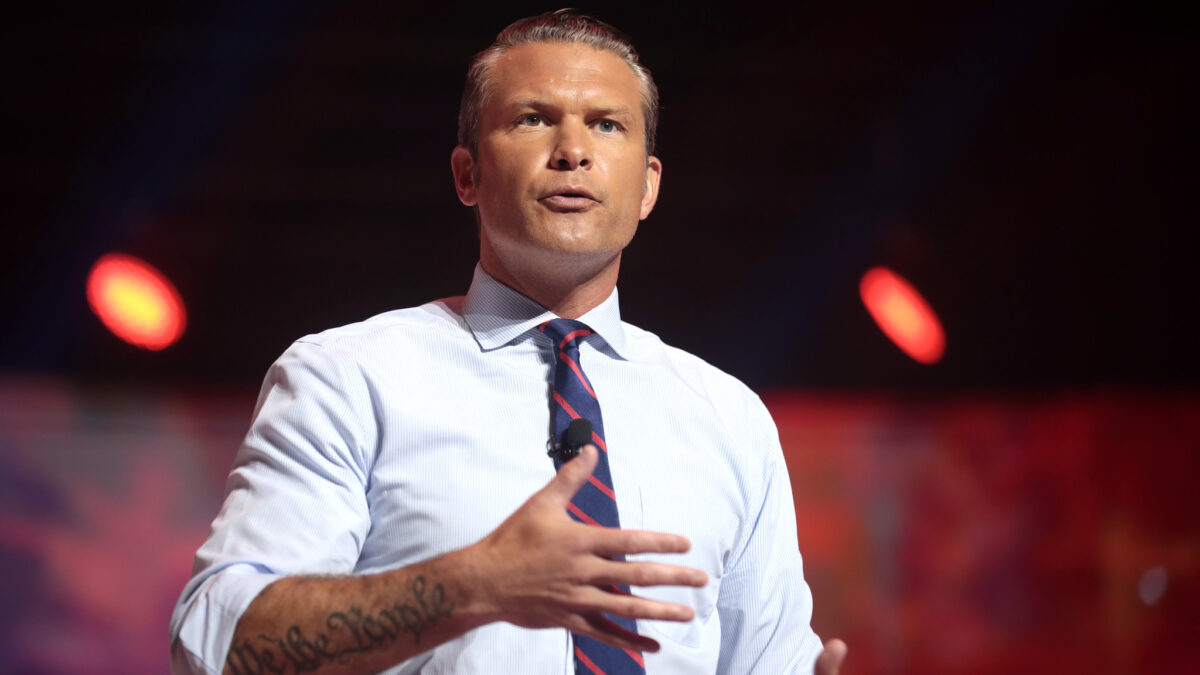Two recent pieces written by notable liberal pundits – Greg Sargent and Bill Scher— argue that we’re seeing a abrupt leftward shift among Republican senatorial candidates. If this is true, there are a couple things we could conclude.
First: The GOP is more moderate and obliging than Democrats would have us believe. Republicans are, evidently, capable of acting “political” and willing to compromise on issues when the electorate disagrees with their party or when policy is clearly working.
Two: Candidates will nearly always temper their positions during a general election to broaden their appeal because they’ll say whatever’s necessary. This is not unique to any party or any time or any place.
Then again, though both of the above are surely accurate to some extent, what’s far more likely is that liberals are laying the groundwork to argue that the GOP can only win back the Senate by appealing to voters’ decent liberal inclinations – because these policies are what’s best for them and far more popular than the GOP let’s on.
Let’s take Scher’s piece, “Why Are Republicans Suddenly Leaning Left?” The central problem with his argument is that he asks a question but fails to prove the proposition.
It’s also almost as if liberals like Scher believe the caricatures they’ve created actually exist. Scher deems that waging your rhetorical finger at “Wall Street” as something new to conservatives (apparently he missed 2008), as is saying nice things about teachers – probably because he makes no distinction between criticism of anti-education unionists and educators.
And since the vast majority of Republicans have no interest in banning birth control – only blocking the feds from forcing the religious to subsidize it (chiefly abortifacient drugs) – it signals no big philosophical change in their thinking. Yet, Scher strangely brings up the Colorado Cory Gardner recent support for the legalization over-the-counter contraception as symptomatic of a leftward lurch. Does he know that Bobby Jindal supported over-the-counter contraception in 2012? Does he know that libertarian-leaning Republicans have long backed this kind of policy? Does he know that Planned Parenthood opposes the proposal? Enhancing consumer choices makes it far more difficult to regulate and subsidize choices. So this is not a liberal political idea.
But even if Gardner and others are hoping to deflect some of the extraordinarily creepy and dishonest ads being run about their records – and it probably is – that signals a political calculation not a philosophical shift.
My favorite part, though, is when Scher focuses on some banal ad produced by Alaska Dan Sullivan ad, and finds it notable that there is “no mention of the word “Republican.”
Is that really of note? Because guess what? In Mark Pryor’s recently produced and much-talked ad highlighting a feature of the Affordable Care Act that Republican have always supported, he fails to mention a couple of things, as well: “Obamacare” or “Democratic Party.” And, hey look, there’s a Mary Landrieu ad unambiguously attacking the administration for its extreme positions on energy. Not mentioned: Democratic Party. And here’s a Bruce Braley deriding Republican Joni Ernst for not cutting enough spending in Iowa. No mention of the Democratic Party. Actually, at this point it’s difficult to find an ad from anyone mentioning their party affiliation. The reasonable takeaway from these ads is not that Democrats are morphing into Reaganites party but that they will say anything to get elected.
Sargent’s argument, which he’s been making for weeks, can basically be boiled down to a logical problem. Since not every Republican everywhere adheres to every traditional conservative position the entire party is buckling.
Exhibit A: Tom Cotton on the minimum wage:
“I’m going to vote for that initiated act as a citizen,” Rep. Tom Cotton, who is running for the U.S. Senate, said Friday in an interview on KHTE-FM. “As Arkansas’ next U.S. senator, I’m going to make sure that we have a healthy economy, not the kind of minimum-wage economy that Barack Obama and Mark Pryor have created.”
It’s the kind of weasel response you’d expect on a populist issue that most voters do, in fact, reflexively support. If a minimum wage hike is good for Arkansas, you might ask, why not for Texas or Florida? Why not everyone? I’m not sure how many people decide how to vote on the issue of minimum wage (it doesn’t show up in a single poll for “most important issue”) but candidates avoiding, but never promising, to enact minimum wage nationally is not new. And considering Cotton’s opponent sounds like a rock-ribbed Republican, reading too much into it smacks of wishful thinking.
The most often cited issue, though, is the equally mushy stand many Republicans have taken on Medicaid expansion. Admittedly, being put in the position of refusing “free” money from the federal government is a political challenge – even if taking it a mistake. It is a cowardice not ideology.
Sargent:
Their position, in a nutshell, is: Obummercare is evil and it must be destroyed immediately, but I really don’t want you to think I would ever kick people off the Medicaid expansion!
Acquiescing to one aspect of massive legislation and its “benefits” for political reasons means you must support the whole thing! You will remember how Democrats were huge fans of George Bush’s tax cuts because they approved (or maybe gave in to) one slice of the cuts.
Even when losing, Democrats are really winning. It’s quite an argument.
Follow David Harsanyi on Twitter.









